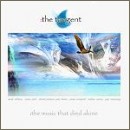 The Tangent
- "The Music That Died Alone" The Tangent
- "The Music That Died Alone" Inside Out Records 2003 This is new project that gathered under the same roof Van Den Graff's legend David Jackson and younger "prog-devotees" from Parallel Or 90 and Flower Kings. We got three large-scaled songs subdivided into many parts. First is called In Darkest Dreams. It opens and runs through Keith Emerson's traditionally flavoured organ passages and captures also some medieval seventies Yes touches. Album delivers a clash between old and more contemporary (new aged) prog-rock standards. Alive, very promising improvising. Promising? Well, till first vocal verses appear. Vocal additions on entire record are horrible and sometimes turn to be the worst nightmare (In Darkest Dream's sixth part called On Returning). I don't know why such musicians are deciding to sing along. They are undoubtedly highly talented in what are they doing, but colour of used vocals is not suiting here, and this also concerns for more or less clumsy selected vocal line arrangements. Otherwise, production is phenomenal, alive, a nice balance between all instruments, alive pounding bass line. Combination of "two in one" musicians (instrumentalists/vocalists) of Alvin Lee, Leslie West or Geddy Lee calibre is unfortunately hard to find each and every day. Sound is enriched by great addition of Dave's huge palette of different brass devices. Record smoothly runs through and through. Music immediately invades the ears. Generally speaking, when not having in mind seventies prog-rock scene and miserable addition of vocals, this is very good and solid album. Second suite is called The Canterbury Sequence where The Tangent calls Canterbury scene of bands such as Soft Machine or Caravan back to life. Vocal lines are arranged far better in comparison with In Darkest Dreams and this song contains some spicy and very tasty conversation between grand piano, flute, sax and guitar jazzing solos. As soon as The Tangent gets purely focused onto instrumental jamming, it results in awakening the seventies golden prog-era. But as you might already notice, The Tangent are offering nothing to be worth of dying for. Well best things were already invented by Yes, Genesis, King Crimson, E.L.P. in early seventies with albums like Tarkus (E.L.P.), Fragile (Yes) or The Wake Of Poseidon (King Crimson). The third suite is a title track. Again with some very impressive jazzing of many different colours (Pre-History) that never overdoses the whole sound picture, brilliantly puzzled together with great feel. The Tangent are revivalists that are keeping the golden era prog-rock spirit alive. Therefore brave attempt. But next time it would be better for them to compose purely instrumental music or to find appropriate singer that will suit to the genre they play. As I see, The Tangent is nothing but a low budget project of a few musicians with familiar taste gathered in studio with main goal to play what they like to, not asking much which genre or style (still pretty hard to hide their aforementioned influences), but exclusively gathered just to have some studio fun. And this is positive, because "The Music That Died Alone" is from that point of view very convincible, sincere and serious effort and therefore worthy of your attention. It still rocks with guts!
|
|
|||||